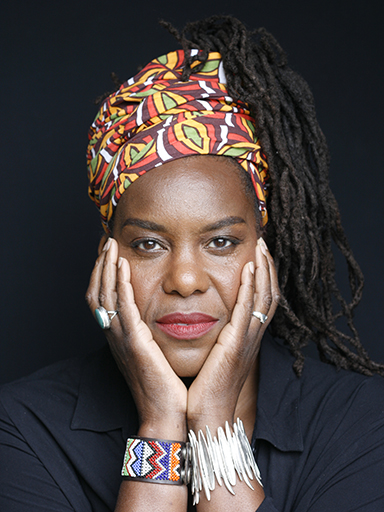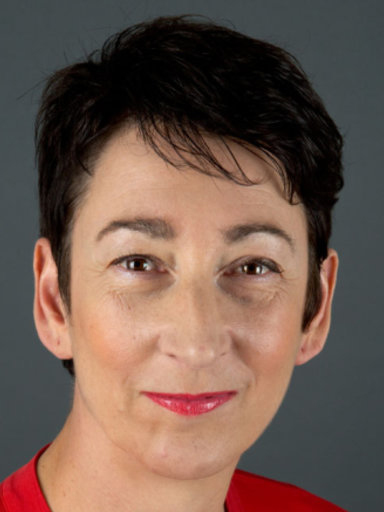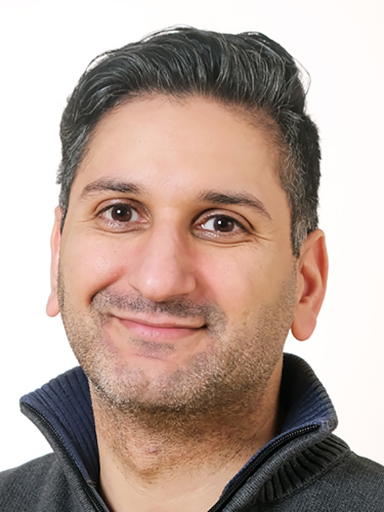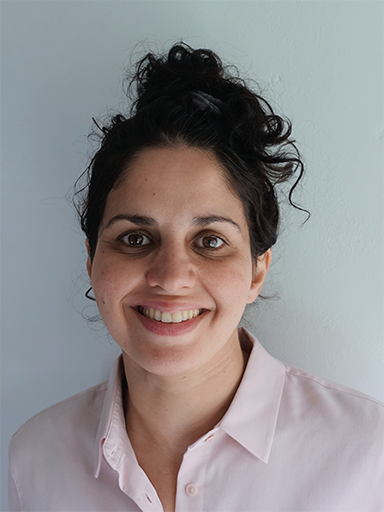Plenary morning session
(9:30-12:15 hrs)
At the plenary morning session we will start with storyteller Dr. Aminata Cairo to warm up the public about the topic. APH’s director Prof. Martine de Bruijne will introduce APH's new strategic theme 'Diversity, Equity and Inclusion'. The APH DEI committee will present itself and its mission and plans to incorporate DEI within the research institute. Subsequently, Dr. Petra Verdonk, APH researcher and associate professor at the Department of Ethics, Law & Medical Humanities at Amsterdam UMC, will give an internal keynote presentation.
After the coffee break, we will continue with two external keynote speakers who work in a DEI related field: Dr. Hafez Ismaili M'hamdi, assistant professor at the Department of Medical Ethics, Philosophy and History of Medicine at Erasmus MC, and Prof. Hinda Haned, professor by special appointment of Data Science at the University of Amsterdam and co-director Civic AI Lab.
Speakers
 Aminata Cairo
Aminata Cairo
 Petra Verdonk
Petra Verdonk
 Hafez Ismaili M’hamdi
Hafez Ismaili M’hamdi
 Hinda Haned
Hinda Haned
Dr. Aminata Cairo
Aminata Cairo is an anthropologist, psychologist, educator, storyteller, 'love-worker'. She was the Lector of Inclusive Education at The Hague University of Applied Sciences. She is the first and was the only lector of African descent in the Netherlands. Since 2022 she is the Lector of Social Justice and Diversity in the Arts at the Amsterdam University of the Arts. Born and raised in the Netherlands to Surinamese parents, she left for the US to pursue her college education. She obtained Master’s Degrees in Clinical Psychology and Medical Anthropology and a PhD in Medical Anthropology. As an international woman of color she experienced firsthand the challenges of diversity and inclusion. In her applied anthropological work with students, education and community organizations she has continually strived to promote inclusion at both the academic and the community level.
Dr. Petra Verdonk
Petra Verdonk is Associate Professor of Ethics, Law and Humanities and a member of the APH program council of the Personalized Medicine research program. Her work as a researcher has diversity and intersectionality at its core. As a psychology graduate student she focused on the theme ‘high occupational disability risk of women’. Her PhD trajectory included the implementation of sex and gender issues in all Dutch medical curricula. Currently, her research focus is on interculturalization/diversity issues in health care and medical education and from an intersectionality perspective. She is currently also the secretary of the Nederlandse Vereniging Gender & Gezondheid.
Dr. Hafez Ismaili M'hamdi
Hafez Ismaili M’hamdi is Assistant Professor at the Department of Medical Ethics, Philosophy and History of Medicine at Erasmus MC. In 2021 he became a member of the Council of Public Health & Society, where he is part of the group on reproductive medicine. He is also the vice chair to the Center of Ethics and Health and a member of the steering committee on diversity and inclusivity of the Erasmus MC. He was trained in ethics and philosophy at the University of Utrecht and University of Leiden, and as a musician at the Royal Conservatoire in The Hague. In 2018, he completed his PhD on the distribution of responsibilities for the health and wellbeing of children-to-be. Currently he is doing research on the health differences and ethical issues surrounding embryos.
Prof. Hinda Haned
Hinda Haned is professor by special appointment of Data Science at the University of Amsterdam and the Scientific Co-director of the Civic AI Lab. Her research focuses on developing solutions for best practices for safe and responsible data science. She is also the founder of Owls & Arrows, a company specialized in data science consultancy and algorithmic auditing.
Walking lunch
(12:15-13:50 hrs)
During the walking lunch you can network with fellow APH researchers, visit the poster presentions and play an interactive board game in our Diversity game room.
Diversity game room
(12:45-13:45 hrs)
In the Diversity game room you can join one of our game tables with 6-8 player seats (Dutch and English language tables ). During the board game players are taken through the life cycle and encounter macro and micro issues that impact each character’s health and longevity, however each character will experience these issues differently based on its character profile that includes gender, socio-economic status and ethnicity. Join one of our game tables and learn more about DEI in a fun and supportive environment and with fellow APH researchers.
Poster presentations
(12:50-13:50 hrs)
PhD candidates, junior researchers and postdocs are invited to present a poster of their research project at the Annual Meeting. Visit the poster presentations and get to know APH's research projects better!
Submission procedure
Submit an abstract before Monday October 23rd 09:00 hrs. (extended deadline) via the form below. Fill in this form and send it to aph@amsterdamumc.nl. All submitted abstracts will be reviewed by the program leaders on scientific and methodological quality, scientific and societal relevance, innovative character and suitability to APH (both overall and to your research program), and on the data available to be presented.
In the week of October 30th you will be informed whether your abstract is accepted and you can present a poster during the poster sessions. The best posters compete for the APH Poster Award 2023! The award comes with a money prize in vouchers:
- Winner: € 500
- 1st Runner-up: € 300
- 2nd Runner-up: € 200
APH DEI Booster Grants
APH is offering 6 APH Diversity, Equity and Inclusion (DEI) Booster Grants each having a value of maximum € 5,000 to APH researchers. The APH DEI Booster Grant 2023 is a grant to encourage educational projects, scholarly research, creative endeavors, and professional activities that promote APH's and its DEI committee’s goals on promoting diversity, equity and inclusion in our research, the academic work environment and beyond. More about the APH DEI Booster Grant 2023 can be found on this page.
Parallel theme sessions
(14:00-15:30 hrs)
After lunch and the poster sessions, parallel theme sessions will be held hosted by the APH research programs.
(1) Inclusive research in Mental Health
Organized by: Mental Health
(max. 35 pers.)
What is inclusive research? And how do you make sure you include different groups of people in your research? Focusing on Mental Health research, we will discuss diversifying your study population for more inclusive research. The Mental Health research program will host an interactive session on this theme, co-hosted by Arnoud Verhoeff and Marjolein Timmermans from GGD Amsterdam & Sarphati Amsterdam. We will start with a short intro on the topic, using the Sarphati Cohort as an example. Next, in an interactive game we will discuss and exchange experiences on the topic of inclusive research; best practices, ethical dilemmas and plans for the future. What does your study population need? And what do you as a research team need in order to achieve inclusive research?
(2) Responsible and ethical AI
Organized by: Digital Health and Personalized Medicine
Responsible and ethical artificial Intelligence (AI) involves the development and deployment of AI systems that prioritize accountability, fairness, transparency, and privacy. In this parallel session, the research programs Digital Health and Personalized Medicine will share knowledge and tools necessary to navigate the ethical challenges of AI for APH researchers and practice. Michel van Genderen, internist-intensivist at Erasmus MC, will speak about the first worldwide ethics lab for artificial intelligence, the Responsible and Ethical AI in Healthcare Lab (REAHL). Kak Khee Yeung, vascular surgeon at Amsterdam UMC will introduce the Horizon Europe funded VASCUL-AID project, that focuses on AI for personalized medicine in the cardiovascular domain. Marieke Bak, medical ethicist and researcher at Amsterdam UMC, will give insight in key ethical considerations in responsible implementation of AI.
3) Workshop: Dilemma's rondom co-creatie in onderzoek naar maatschappelijke participatie en gezondheid (Dutch session)
Organized by: Societal Participation & Health
Cliëntparticipatie in onderzoek, hoe pak je dat aan? In deze workshop leer je (meer) over wat participatie in onderzoek betekent, en welke dilemma's er zijn rondom cliëntparticipatie. We starten met een oefening gericht op bewustwording. Daarna delen we ervaringen uit onze eigen projecten met verschillende vormen van cliëntparticipatiewaarbij we niet schromen om ook onze worstelingen en dilemma's te benoemen. We hopen jullie te inspireren met onze ervaringen zodat we samen cliëntparticipatie in onderzoek kunnen versterken. De workshop wordt georganiseerd door Christine Dedding, Nicole Goedhart, Maaike Huijsmans en Cécile Boot.
English: In this workshop, you will learn more about what it means to integrate the perspective of the public in your research project. We will start with an interactiveactivityon awareness. Next, we will share our experiences with different ways to enhance participation of the public in research projects focusing on enhancing societal participation, but also our struggles and the dilemmas we faced while doing this. We aim to create awareness andwe hope to inspire you to start or improveyour participation practices in APH research. Workshop organized by Christine Dedding, Nicole Goedhart, Maaike Huijsmans and Cécile Boot.
(4) Diversity, equity and inclusion and representative research: challenges in recruitment and retention
Organized by: Methodology, Health Behaviors & Chronic Diseases, Aging & Later Life and Quality of Care
An important aspect of ensuring that study results have impact on practice is representativeness of the study population. It is therefore important to recruit, include and retain study participants that are as diverse as the target population. For example, think about a good representation in your study of different migrant groups, social economic status and people with disabilities. This is not easy and requires careful consideration in every type of study design. In this session APH programs Aging and Later Life, Health Behaviors and Chronic Diseases, Methodology and Quality of Care join forces in an inspiring session exploring challenges and solutions of representative research. Examples are presented from different fields of research, and you are invited to reflect on the challenges and solutions you face in your own research.
- Welcome and aim of the session
- When representativeness becomes a problem: Artificial Intelligence as an example (Dr. Wessel van Wieringen)
- Break out session 1: reflect on your own challenges with representative research
- Diversity and qualitative research: How inclusive are we and how to improve? (Dr. Mirjam Fransen)
- Representative inclusion and retention in the HELIUS cohort (Dr. Henrike Galenkamp and Dr. Anitra Koopman)
- Break out session 2: reflect on possible solutions in your own research
- Take home messages and closing
Plenary afternoon session
(15:50-16:30 hrs)
The plenary closing starts with the award ceremony of the APH DEI Booster Grant 2023, where plans boostering DEI-related activities of APH researchers will be chosen by lottery, and continues with the poster award ceremony, during which the winners of this year’s APH Poster Award 2023 are announced. Excited! We will end the plenary closing session with an entertaining and energetic closing performance.
We will conclude with drinks & appetizers until approximately 18:00 hrs. It will be an informative and entertaining day about an emerging field of research with many opportunities to network with your fellow APH researchers!

